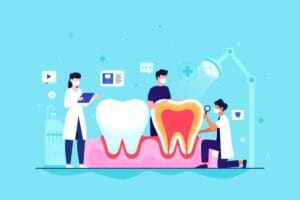How did millennials manage to get more health problems than their parents? It is a confusing situation. Is this statement true, or is it magnified by the fact that the health issues they are dealing with are quite different from the ones their parents are experiencing? If you are a millennial, it does not mean you are susceptible to the following diseases, while your parents are penetrable to them. It means that you are experiencing unique life conditions and circumstances that affect your health. Your generation experiences health problems different from the ones of your parents, because you are exposed to other triggers, like blue light exposure, computer work, and other similar ones.
When your parents were the same age you are, they were not experiencing the same health conditions you are suffering from. Even the mental conditions millennials experience are different from the ones of the older generations. They are exposed to the same factors: trauma, divorce, parenting problems, but they are at a greater risk of suffering from anxiety and depression-related disorders.

The millennials generation is at great risk of suffering the following health problems:
Eyestrain
Screens are part of millennials’ daily routine, but the same screens are causing their eyes to become more sensitive, and more and more millennials experience symptoms like pains and tiredness. Doctors named this condition digital eyestrain. They state that people should view their eyes like any other muscle from their body. When you are constantly overusing them, they experience fatigue. Every eye from the human body has six muscles that move it, and one muscle that focuses it.
Around 70% of millennials experience digital eyestrain, the majority of them state that they have symptoms like sensitivity to light, pain behind the eyes, headaches, and general fatigue. The best way to prevent this condition is to leave aside for a couple of hours a day the devices that feature screens and to go out for a walk. During the nighttime, it is advisable to set the night mode on devices to protect the eyes.
Obesity
Young adults are predisposed to suffering from obesity. There are countless factors that can cause overweight. Obesity is a condition that offers concern reasons worldwide. In the case of obesity is untreated for years, it can lead to complex health issues. The body of an obese person experiences long-term change, it changes the way it processes food, it maintains the weight even if the person modifies their diet and it affects the organs. Some of the changes the body suffers because of obesity are not reversible, and this is why experts are trying to raise awareness when it comes to extra weight.
Millennials have to work better and exercise more in order to maintain the same weight their parents had when they were their age because they are exposed to different environmental and lifestyle factors.
Hearing loss
With the millennials, the term “generation deaf” was first mentioned. Young adults are constantly using their headphones to listen to their favorite tunes on different apps. But the question is Do these plastic devices cause hearing loss??
Experts are in a constant debate on this subject because everyone is aware that the young generation is exposed to noise levels different from the ones their parents were because they are excessively using their devices. Numerous studies showed that millennials experience more hearing loss compared with older generations. And they do it from a younger age. This is the normal effect of an activity that implies constantly listening to something.
Moderation is the best way to prevent hearing loss issues. If you are listening to music at maximum levels, it may be time to decrease the volume.
Anxiety and depression
We cannot talk about health issues that are affecting millennials without mentioning the mental ones. They are the generation that lost the work-life balance, and they are the ones who invented the Instagram FOMO condition. When you have access to great information, you can be predisposed to have a tragic view of the world. Millennials have a different perspective of the world, than their parents have, especially since they experienced the 9/11 and school shooting episodes. They live with the fear of getting involved unwillingly in violent situations. They consider that their life is at threat constantly.
But, the millennials generation is not only the generation that is highly affected by depression, but they are also the ones who have chosen to fight back. They are open to asking for help and even if they are still dealing with stigma, because of their mental health issues, they consider it a big mistake to not discuss with a mental health professional.
Binge drinking
Alcohol use disorders are some of the main factors why young adults have unprotected sex and end up suffering from STD. Binge drinking is one of the main causes that lead to a great number of deaths in millennials. They pair drinking with driving and they get involved in accidents that have resulted in injuries and death. Binge drinking is one of the greatest problems college students are dealing with. The majority of them become alcohol addicts and the only way they can break this harmful habit is to get ibogaine treatment in specialised centres.
Alcohol influences their lifestyle, their work, and their recovery resources, so it is crucial they be aware of this risk.
Perfectionism
Perfectionism is considered the greatest weakness millennials have. They feel pressed to meet impossible standards and their performance is assessed according to metrics only a superhuman would be able to meet. Social media is one of the factors that have to be blamed for perfectionism because it shares the idea that people have to compare themselves with other people. Social media is selling an image, in the majority of cases, the image of celebrities. What the majority of millennials do not understand is that celebrities have access to resources normal people do not have. And they post on social media only the photos and videos that show them in perfect light.
Perfectionism is the main factor why people are experiencing depression, anxiety eating disorders, and other related health issues.











